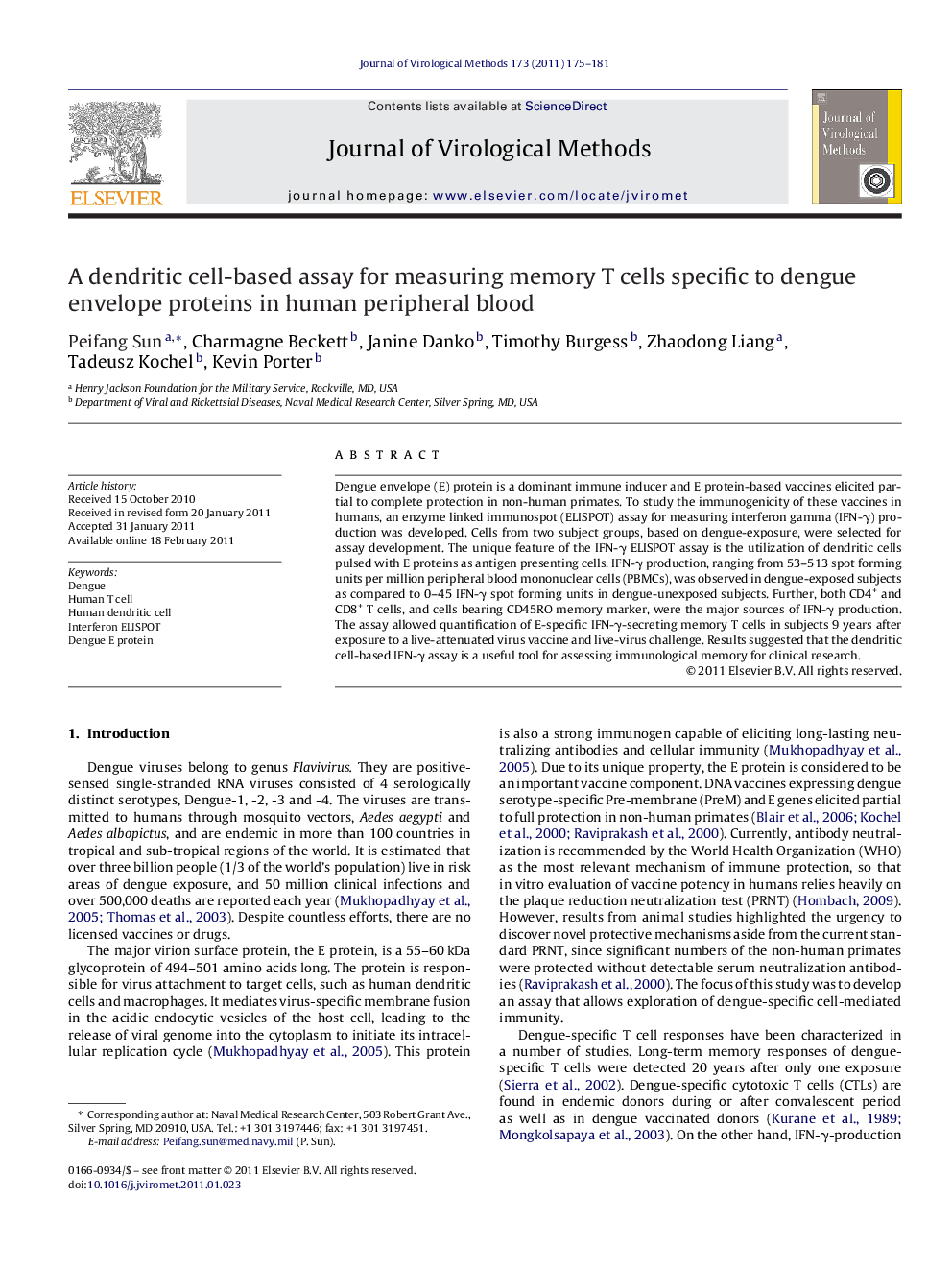| Article ID | Journal | Published Year | Pages | File Type |
|---|---|---|---|---|
| 6135221 | Journal of Virological Methods | 2011 | 7 Pages |
Dengue envelope (E) protein is a dominant immune inducer and E protein-based vaccines elicited partial to complete protection in non-human primates. To study the immunogenicity of these vaccines in humans, an enzyme linked immunospot (ELISPOT) assay for measuring interferon gamma (IFN-γ) production was developed. Cells from two subject groups, based on dengue-exposure, were selected for assay development. The unique feature of the IFN-γ ELISPOT assay is the utilization of dendritic cells pulsed with E proteins as antigen presenting cells. IFN-γ production, ranging from 53-513 spot forming units per million peripheral blood mononuclear cells (PBMCs), was observed in dengue-exposed subjects as compared to 0-45 IFN-γ spot forming units in dengue-unexposed subjects. Further, both CD4+ and CD8+ T cells, and cells bearing CD45RO memory marker, were the major sources of IFN-γ production. The assay allowed quantification of E-specific IFN-γ-secreting memory T cells in subjects 9 years after exposure to a live-attenuated virus vaccine and live-virus challenge. Results suggested that the dendritic cell-based IFN-γ assay is a useful tool for assessing immunological memory for clinical research.
